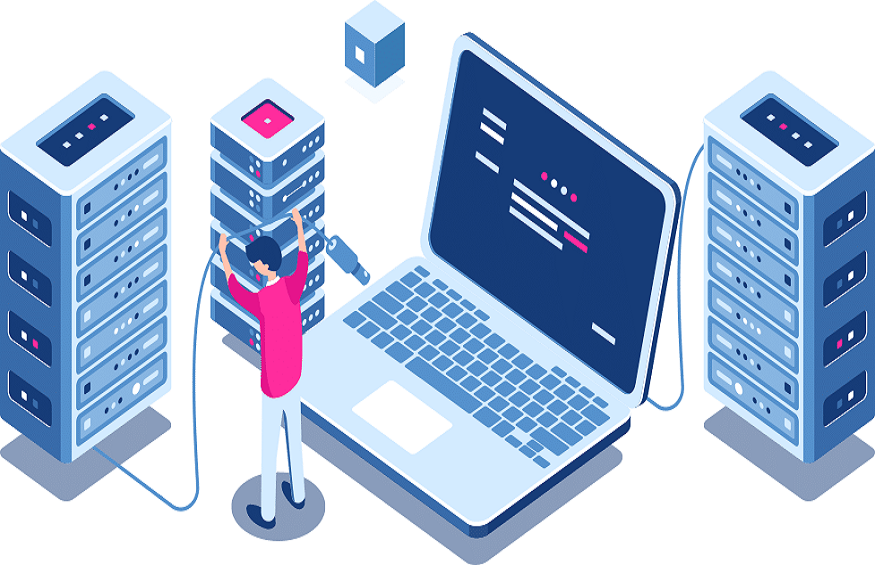Choosing the Right Server for Your Business’s Growing Needs
As your business grows, so do its technological needs. One of the most critical decisions you’ll face is choosing the right server to support your operations. Whether you’re upgrading your existing infrastructure or starting fresh, selecting the ideal server is key to ensuring smooth and efficient business operations. In this guide, we’ll explore the factors to consider when choosing the right server for your business’s growing needs, from performance to security and scalability.
1. Understand Your Business’s Requirements
Before you can choose the perfect server, you must first assess your business’s specific needs. For example, are you running resource-intensive applications? Do you need to store large amounts of data? Understanding these requirements will guide your decision-making process.
If you need more storage, look for servers with large storage capacities or consider cloud solutions. On the other hand, if your business requires high-speed data processing, prioritizing a server with higher processing power will ensure better performance.
2. Types of Servers Available
There are several types of servers to choose from, and each has its benefits depending on your needs. Let’s explore the most common types:
Dedicated Servers: A dedicated server provides exclusive resources to your business. It is a great choice if you need high performance and security, as you are not sharing resources with others.
Virtual Private Servers (VPS): VPS hosting provides a balance between cost and performance. It gives you dedicated space on a physical server, but it shares resources with others. VPS is ideal for small to medium-sized businesses.
Cloud Servers: Cloud hosting allows your business to scale resources up or down as needed. This is particularly useful for businesses with fluctuating demands. Cloud servers are also known for their flexibility and reliability.
Shared Servers: If your budget is tight and you have basic needs, a shared server may be a good option. However, it does come with limitations in terms of performance and control.


3. Scalability and Flexibility
As your business expands, so will your server needs. It’s crucial to choose a server solution that can grow with your business. Cloud servers, for instance, offer outstanding scalability and flexibility, allowing you to increase or decrease resources depending on the demand.
Dedicated and VPS hosting also offer scalability, though they may require more upfront investment or manual adjustments as your business grows. Make sure to consider future needs, such as website traffic spikes or the need for additional applications, to avoid running into limitations later on.
4. Performance and Speed
Performance is a critical factor in selecting a server. Slow server performance can lead to delays, downtime, and poor user experiences. To ensure your server meets performance standards, look for the following:
Processor (CPU): The server’s CPU will affect processing power. A higher-end CPU will be required for tasks like video rendering or complex data processing.
RAM: The more RAM your server has, the more tasks it can handle simultaneously. This is especially important for businesses that run multiple applications or experience high traffic.
Storage Type: Solid-state drives (SSDs) are faster than traditional hard disk drives (HDDs). If speed is critical, SSDs are the better option.
5. Security Considerations
Security is paramount in today’s digital landscape. Ensure that the server you choose comes with robust security features to protect your sensitive data. Look for features such as:
- Firewalls: A firewall will help block unauthorized access to your server.
- Backup Solutions: Regular backups are essential to avoid data loss. Choose a server that offers automated backups.
- Encryption: Ensure the server supports encryption, which will safeguard your data, particularly when transmitted across the network.
Cloud servers often provide built-in security measures, while dedicated and VPS servers may require additional configuration or third-party services.
Conclusion
Choosing the right server for your business’s growing needs involves careful consideration of various factors, including performance, scalability, security, and cost. By evaluating your business’s specific needs, understanding the types of servers available, and prioritizing security and reliability, you can make an informed decision that will support your company’s growth and efficiency.
Take your time to research different options, consult with experts if necessary, and invest in the server that will best support your business in the long run.
For more detailed information on scalable solutions, check out our guide on cloud hosting. Additionally, for external resources on choosing a server for your business, visit TechRadar’s server buying guide.
Explore more on: Enabling quality education – Oston Technology

